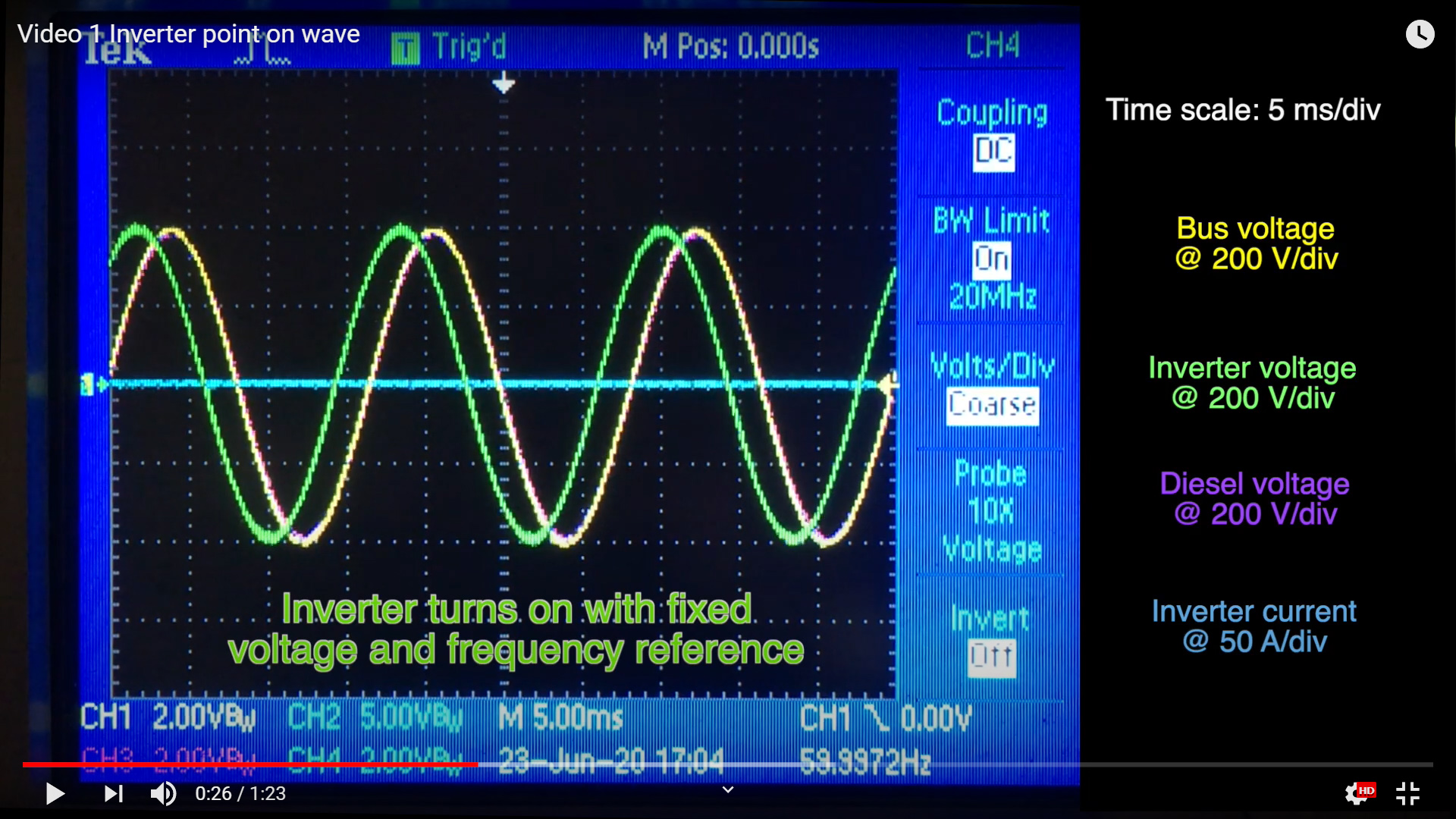Real-Time Modeling of Inverter-Dominated Microgrids at ACEP

To prepare for the microgrid of the future, and to prepare for more renewables being deployed across Alaska, we need to develop modeling tools that can accurately predict the performance of these inverter-coupled renewable systems with the integrated diesel powerhouses.
ACEP’s President’s Professor in Energy Mariko Shirazi is leading the development of a microgrid modeling program at ACEP based on real-time simulation. As a test case, ACEP has developed a 100-kilowatt microgrid model. It includes a switching-level model of an 80 kilovolt-amperes three-phase inverter plus controller, an 80 kVA diesel generator with a governor, exciter/voltage regulator, and paralleling controller, line impedances and loads. The model executes in real time, meaning that simulation of a one-minute event takes, well, one minute. A non-real-time model would take hours.
What does this all mean? Well, we can now efficiently evaluate control approaches and platforms, efficiently validate simpler lower resolution models, and efficiently and safely test real-world inverter and diesel paralleling controllers without the potential of damaging expensive hardware.
To demonstrate the capabilities of this real-time simulation, Shirazi captured oscilloscope waveforms during the execution of a one-minute sequence of events within the model. For these videos, the diesel generator is operated isochronously while the inverter is operated in grid-forming mode (voltage control mode) with 5% power/frequency and reactive power/voltage droops. The first video shows instantaneous voltage and current waveforms, while the second video shows inverter frequency, RMS voltage, and real and reactive power.
In addition to demonstrating the power of the real-time simulation platform, the videos also demonstrate the benefits of the grid-forming inverter control strategy – notably that even if the diesel generator trips off-line, the inverter is able to immediately pick up the load.
These research efforts are funded by a U.S. Department of Energy Established Program to Stimulate Competitive Research grant, “Development and Validation of Models to Assess Dynamic Response of Converter-Dominated Power Systems across Multiple Spatiotemporal Scales,” a partnership between UAF, the University of Puerto Rico Mayagüez and South Dakota State University.
For more information on this project, please contact Mariko Shirazi at mshirazi@alaska.edu.
A screenshot taken from the model Mariko Shirazi developed to simulate a 100-kilowatt microgrid with an 80 kilovolt-amperes three-phase inverter.


